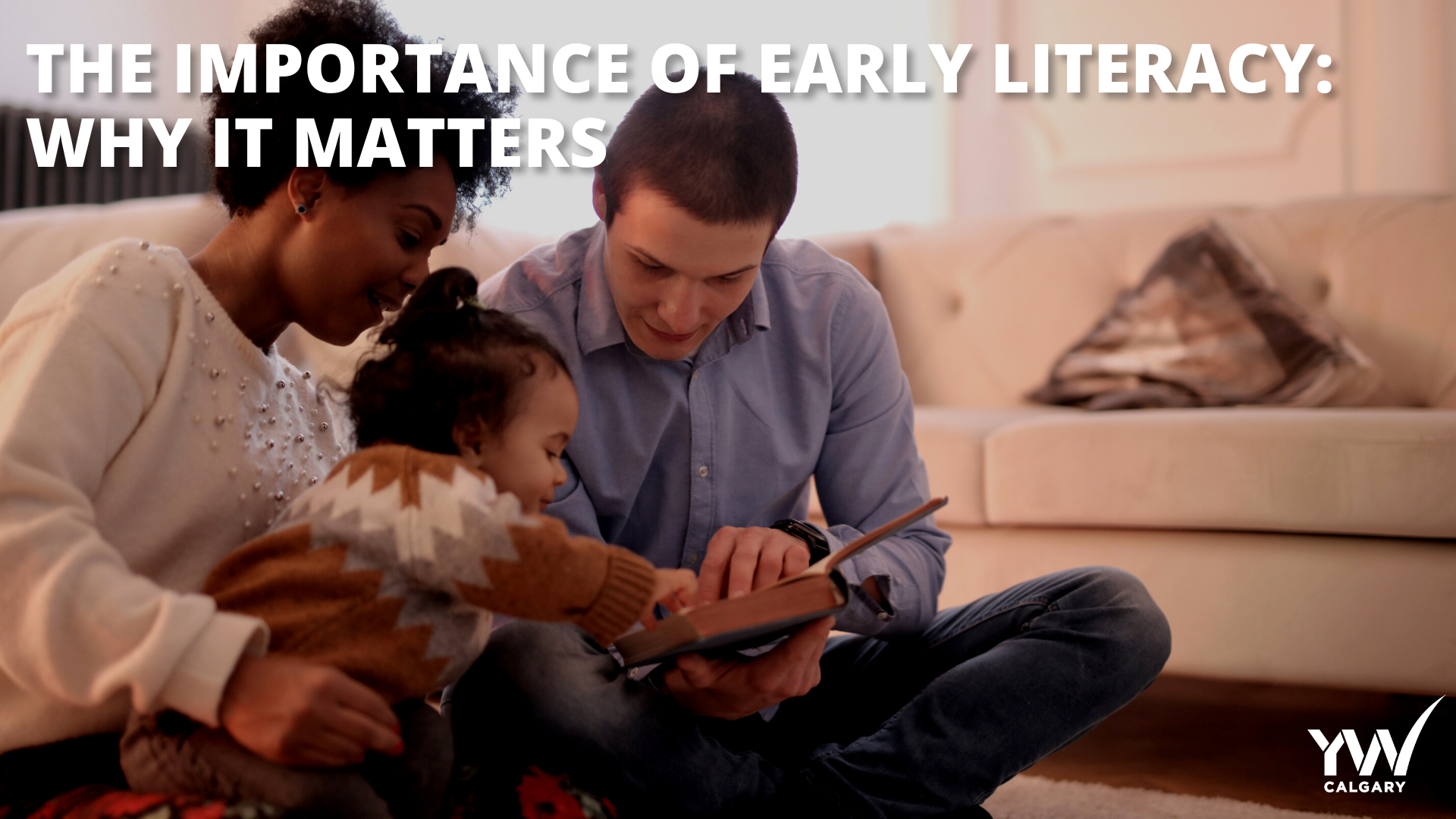Lacie Wichert, Guest Contributor
Education is one of the most valuable gifts that we can give the younger generation. All children deserve the opportunity to succeed in life, to become independent and to have the confidence to navigate the world around them. One of those key skills is literacy, and this skill is best developed early in their lives. By providing support and resources to help children develop their literacy skills, we can help ensure that they have a strong foundation for learning and growth, regardless of their background or circumstances. Let's explore why early literacy is important:
Preparing Children for School
Developing early literacy skills is essential in preparing children for success in school. Research has shown that children who are exposed to reading and language-rich environments before they start school are more likely to be successful in academic pursuits later on. This is because early literacy development provides children with a strong foundation of linguistic skills, improved grammar, higher quality writing, better spelling, and increased oral communication.
Children who enter school with strong literacy skills are better equipped to understand and communicate with their teachers and peers, and to comprehend the information presented to them in class. They are also more likely to be able to follow instructions, complete assignments, and express themselves effectively, which are all crucial skills for success in school.
Building Connections in the Brain
90% of brain development occurs in the first five years of life, and so it is important to make the most of this time. Reading, and engaging in conversation turns, with children creates a positive relationship, which further enhances their development. In fact, the American Academy of Pediatrics recommends that parents start reading aloud to their children from birth and continue to do so as often as possible. Reading aloud not only helps to build connections in the brain, but also helps to foster a love of reading and learning in children. This love of reading can have long-lasting benefits for children, leading to improved academic performance, stronger social skills, and better mental health.
Reading aloud is incredibly effective at building connections in the brain because it engages multiple areas of the brain at once. When a child listens to a story, they are processing the sounds of the words, the meaning of the words, the context of the story, and the emotions conveyed by the characters. All of these processes involve different areas of the brain, which work together to create a rich and complex understanding of the story. By engaging these different areas of the brain, reading aloud helps to create new connections and strengthen existing ones, leading to more robust neural pathways that will support learning and development in the years to come.
Cognitive and Language Development
Early literacy also plays a significant role in children's cognitive and language development. Reading to young children helps them develop cognitive skills such as memory retention, attention span, and critical thinking. As children listen to stories and process the information being presented to them, their brains are working to form connections and synthesize new information. These cognitive skills are essential for academic success and overall intellectual growth.
Additionally, early literacy development helps to build language skills, including vocabulary and grammar. When children are read to, they are exposed to a wide range of vocabulary and grammatical structures, which helps to expand their own language skills. Children who are read to regularly tend to have more advanced language skills, including a richer vocabulary and more complex sentence structures, which allows them to communicate more effectively and engage in more sophisticated thinking.
The Statistics
Despite the importance of early literacy, there are several concerning statistics that indicate that many children are not receiving the support they need. For example, 37% of children arrive at kindergarten without the skills necessary for lifelong learning. In addition, 50% of children from communities that are facing barriers to progress enter first grade up to two years behind their peers.
In Canada, one million children under the age of 15 are estimated to have below grade-level literacy skills, which is about one in eight kids. Furthermore, about 25% of children can't read at grade level by Grade 3. Children in low socioeconomic communities are almost 2× as likely to be behind in early development skills as high-socioeconomic status peers. Lastly, 13.8% of Canadian Grade 10 students do not have the baseline level of reading skills needed to navigate in our society.
In conclusion, early literacy is crucial for children's success and developing strong literacy skills early in life prepares children for academic pursuits, builds connections in the brain, and supports cognitive and language development. By prioritizing early literacy and providing children with the resources and support they need, we can help ensure that all children can succeed and reach their full potential.
At YW Calgary, we believe that every child deserves the opportunity to learn and succeed. That's why we're thrilled to be celebrating one year of LENA Start as an official YW program after accepting it as a Dandelion Seed from our friends at Calgary Reads. To date, we have supported nearly 150 families foster early literacy skills with their children and we are excited to continuing growing!




